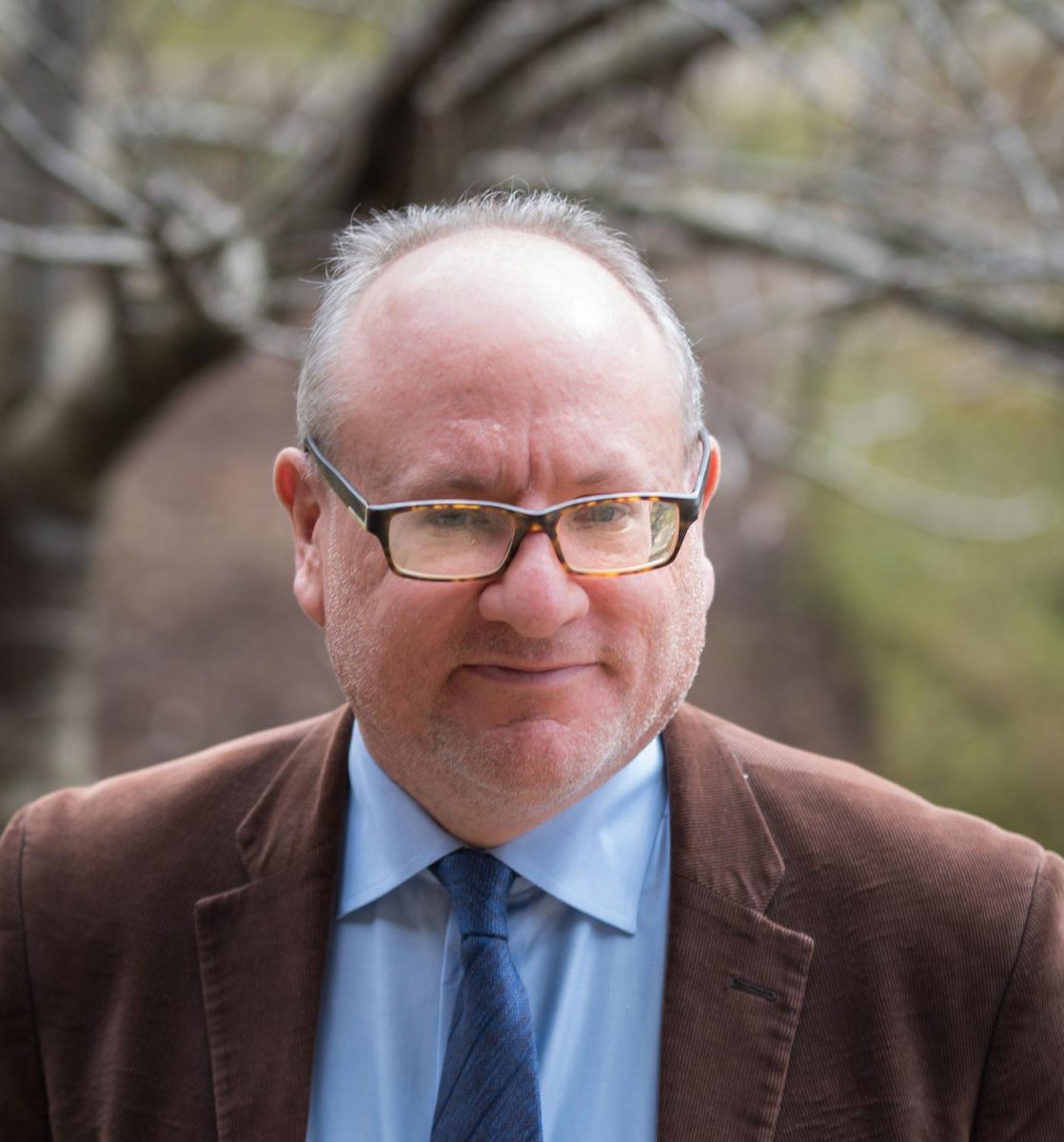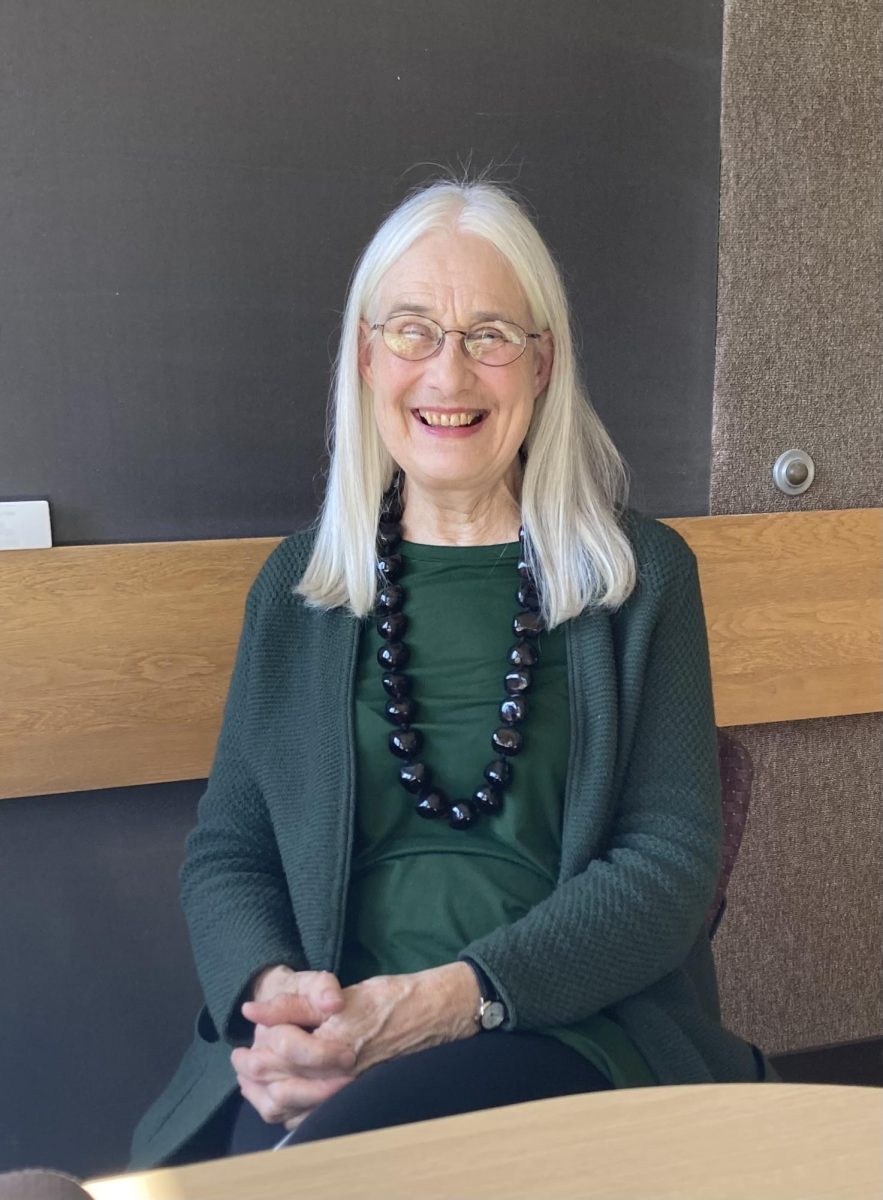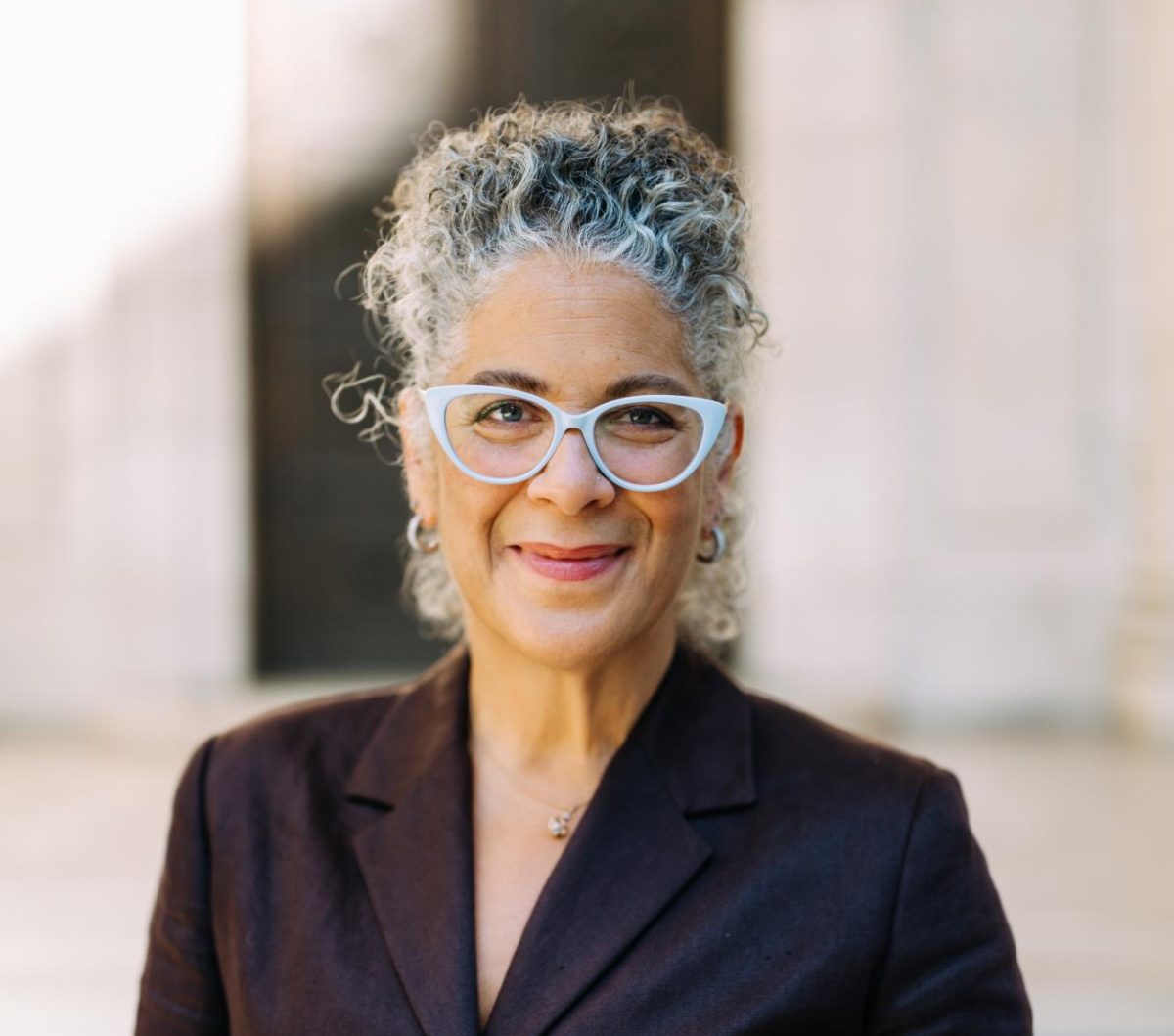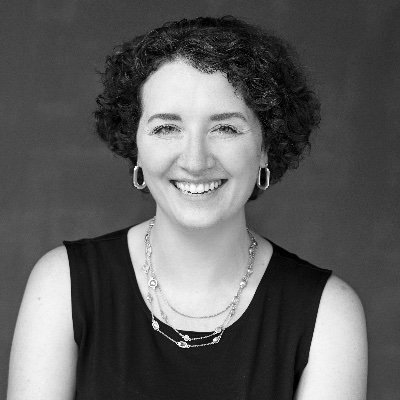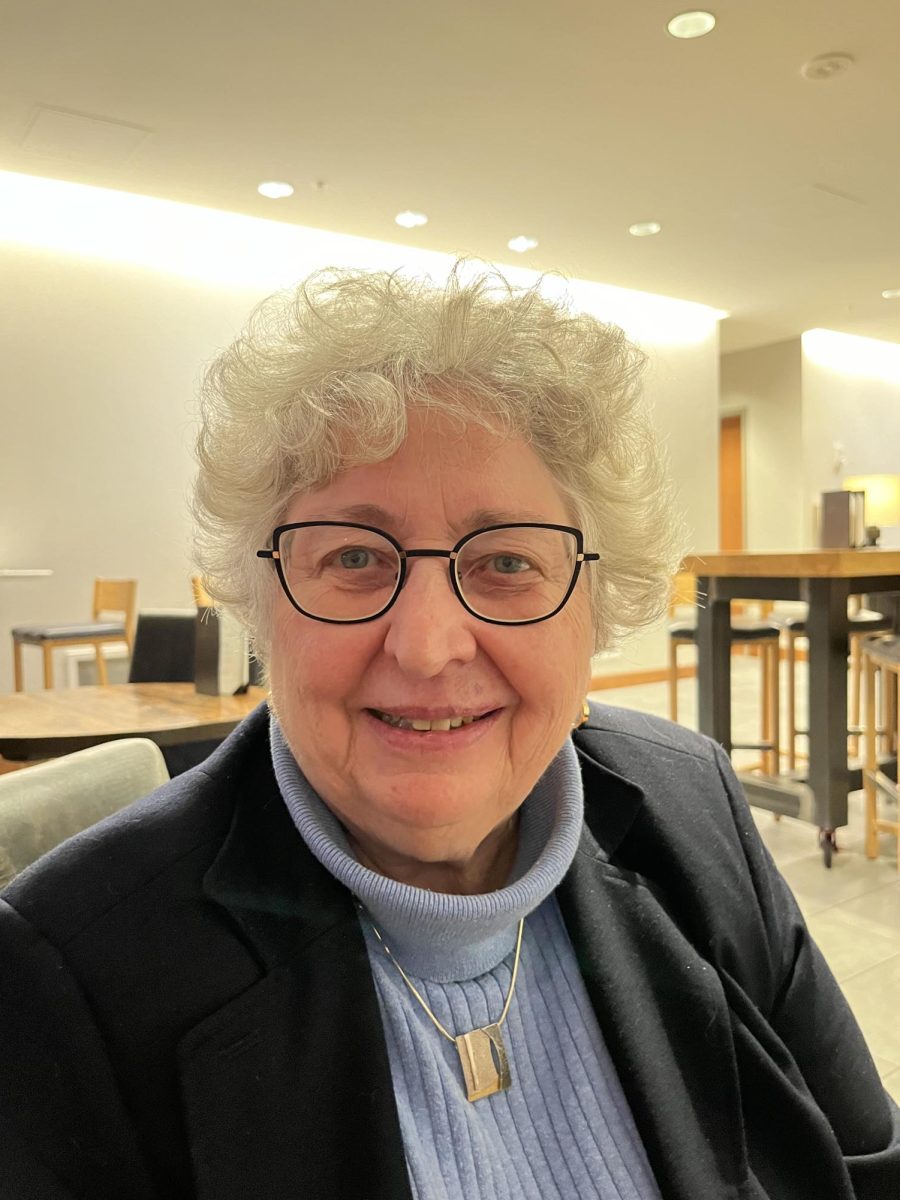On Thursday, Michael Kimmage, OC ’95, came to Oberlin to speak about his new book Collisions: The Origins of the War in Ukraine and the New Global Instability. Kimmage is a professor of History and chair of the department at the Catholic University of America and a non-resident senior associate at the Center for Strategic and International Studies. From 2014–2016, he served on the Secretary’s Policy Planning Staff at the U.S. Department of State, where he held the Russia/Ukraine portfolio.
This interview has been edited for length and clarity.
To start off broadly, what is your lecture about?
So, I’ll speak about the book that I published a month ago, which is called Collisions: The Origins of the War in Ukraine and the New Global Instability. That’s a book that tries to put the war in Ukraine in some historical context, to give a sense of why it happened, to assess, at least at this stage, what its significance is and to make a few predictions about the future course of the war. So, I’ll go over all of that and try to share with the audience the basic argument and outline of the book.
Could you tell me about your process of writing the book that the lecture is based on?
I’ve been a historian of the Cold War for quite a while. And then from 2014 to 2016, I worked at the State Department at the Office of Policy Planning, where I had the Russia/Ukraine portfolio. So I’ve tried to bring those two strands together in the book, with a balance between the academic side of my career and the policy side of the career that goes into the book.
It’s not to say that you can’t understand these things if you’re just an academic. Academics bring some of the most important knowledge to bear on this topic. But I didn’t really know what policymaking was about before going into government. I think I didn’t have enough empathy for how difficult it is, how many moving pieces there are, how quickly foreign policy dilemmas and crises develop, and how quickly they have to be responded to. So at the same time that the book is quite critical of the many mistakes our state department made, and the many other mistakes that the US government has made vis-à-vis this war, I think the book is informed by a certain sympathy for the people in these positions and the people reckoning with these problems. So that, more than anything, was the gift that the State Department gave me: empathy for the sheer and extreme difficulty of decision making. I try to be critical, but not to indulge in easy criticism.
Why do you think this is an important issue to be talking about right now?
I think that there are quite a few reasons. The first is certainly the humanitarian suffering in Ukraine. It’s not the only such crisis in the world, unfortunately, but the scale of the suffering is really breathtaking. You have millions of refugees, and you also have across Ukraine the absence of normalcy. And how quickly the situation could go from relative normalcy in early February 2022 to what you have with the war is something that we all need to ponder.
Secondly, there is a way in which the war is a global source of instability, as the title of my book tries to suggest. It’s had all kinds of spillover effects into neighboring countries, and I think that there’s a strong connection between the current crisis in the Middle East and the new strategies that Russia has taken since the beginning of the war. I don’t think that this is a world war, but it’s certainly a war with a global context.
Then finally, this is the closest confrontation that we’ve ever witnessed between the United States and Russia. Closer, I think, than during the Cold War. These are, of course, the world’s two major nuclear powers. It’s not that I anticipate the conflict becoming a nuclear conflict in the next month or the next year, but the possibility is there. And that compels our attention.
When you graduated Oberlin in 1995, did you or anyone imagine anything like the world situation today?
No, not at all. We were prone to a lot of optimism then. There really was a sense that the Cold War was over, at least that Europe was opening up, which it was in the mid-1990s. Tons of my friends went to study in Europe and often in Eastern Europe, and there was that feeling of openness. It was the most optimistic moment of an optimistic decade. So to understand the world of the present is a huge leap from where we were. I think the sad consequence of being optimistic was that we didn’t really take into account all that much of the things that were going on in the world. And that might be a benefit of being here at the present moment.
Would you say you’ve lost your optimism?
No, not at all. I think that there’s a dialectic between war and peace, and that’s a dialectic that goes back deep into the 20th century. If you look at the world in 1942, it’s almost impossible to feel any kind of genuine optimism. It’s one of the darkest years that I can think of. And yet, 10 years later, Europe, at least, is in a much better place than it was in 1942. And it seems to me that whether one is teaching, whether one is writing, or whether one’s engaged in diplomacy, the need to sort of envision paths out from the present path — that’s just crucial. So the best thing in life, I think, is a kind of tested optimism. The darker the times, the greater the need in some respects.
In one of your previous books you wrote about the novels of Philip Roth. What role does fiction play in understanding what’s happening in world history?
Well, fiction is often about education and contradiction. To go back to your previous question about optimism in dark times, a way to get there is to get there through contradiction. The domain of foreign policy is full of all kinds of deep contradictions. It seems like the United States is an excellent example of that. It’s a very idealistic country in some ways, and a deeply cynical, and rather ruthless country in other ways. And it’s hard to get your head wrapped around that set of circumstances, but literature is the way that one does it.
You talk a lot about global instability. We have a global power going into a big election in the fall. What is at stake with that election, in relation to Ukraine but also globally?
So you can give two answers to the question. One is sort of a structural answer, and this is that American foreign policy doesn’t change that much over time. A lot of the roles that the United States plays internationally are dictated by geography, economics, technology, and so to that degree, are not really changed all that much by elections.
Joe Biden has any number of shortcomings. I do think that he’s a product of the Cold War. I sense in him certain kinds of inflexibility, but it also seems to me, especially in the case of Ukraine, that he’s demonstrated competence, and an admirable set of priorities and principles. None of that would be on the table if Donald Trump were to get elected. There are many more wars ongoing at the present moment than there were when Trump was president. So, the kind of diplomacy by tweet and the manic styles of the presidency under Trump in his first term, if that’s what it was, all of that seems to me a lot more disruptive and potentially catastrophic in a second term.


